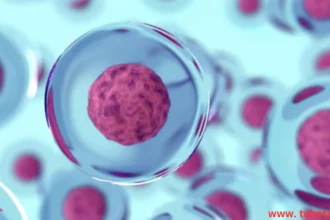Did you know that dogs can be prone to worm infestations, which can cause serious health problems if not treated? Signs of worm infestation in dogs include diarrhea, weight loss, vomiting, and the presence of worms in the stool. Fortunately, there are some natural remedies that can help treat worms in dogs. In this article from teketrek, we will discuss the signs of worm infestation in dogs and how to treat it naturally.
What Are the Types of Worms That Infect Dogs?
There are several types of worms that can infect dogs, which can be classified as:
- Tapeworms: Long, flat worms that live in the dog’s small intestine. They can cause weight loss, diarrhea, and vomiting. These worms are usually transmitted through fleas or other insects.
- Roundworms: Small, round worms that live in the dog’s small intestine. They can cause diarrhea, weight loss, and vomiting. These worms are usually transmitted through contaminated soil or from pregnant mothers.
- Hookworms: Small worms that live in the dog’s small intestine and feed on its blood. They can cause anemia, weight loss, and diarrhea. These worms are usually transmitted through contaminated soil.
- Heartworms: Worms that live in the heart and blood vessels of the dog, causing serious health problems. They can cause coughing, shortness of breath, and weight loss. These worms are usually transmitted through mosquito bites.

Most Common Signs and Symptoms
The most common signs and symptoms of worm infestation in dogs include:
- Diarrhea: May be accompanied by blood or mucus, and the stool may be watery or contain mucus.
- Weight loss: The dog may lose weight noticeably despite eating normally.
- Vomiting: Vomiting may occur frequently and may contain worms or blood.
- Presence of worms in the stool: Worms may be visible in the dog’s stool, appearing as small pieces or long segments.
- Fatigue and lethargy: The dog may show signs of fatigue and may be less active than usual.
- Loss of appetite: The dog may lose interest in food and refuse to eat.
- Abdominal bloating: The dog’s belly may appear swollen, possibly due to worms in the intestines.
- Breathing problems: In cases of heartworm infection, the dog may have breathing difficulties such as coughing or shortness of breath.
If you notice any of these signs or symptoms in your dog, it is important to consult a veterinarian to diagnose the condition and prescribe appropriate treatment. The veterinarian can perform the necessary tests to identify the type of worms and recommend the proper treatment.
The world’s most expensive ornamental fish: beauty, rarity, and outrageous price
How Is Worm Infestation Diagnosed in Dogs?
Worm infestation in dogs is diagnosed through the following tests:
- Stool examination: A stool sample is examined under a microscope to detect worms or their eggs.
- Blood test: A blood test can detect antibodies to worms or signs of infection.
- Clinical examination: The veterinarian examines the dog physically to check for any signs or symptoms of worm infestation.
- X-ray imaging: X-rays may be taken to detect worms in the internal organs.
- Endoscopy: Endoscopy may be performed to identify worms in the intestines or other organs.
After performing these tests, the veterinarian can determine the type of worms and prescribe the appropriate treatment. If you suspect your dog has worms, it is important to consult a veterinarian, as they can provide the necessary care and treatment.
Everything you need to know about lobsters, their types, and their marine life cycle
Risks of Neglecting Worm Treatment in Dogs
Neglecting worm treatment can lead to serious health risks for dogs, including:
- Severe weight loss: Can lead to general weakness in the dog’s health.
- Anemia: Worms can cause anemia due to continuous blood loss.
- Digestive problems: Such as diarrhea and vomiting.
- Damage to internal organs: Such as the liver and kidneys.
- Heart and vascular problems: Heartworms can cause heart failure and other cardiovascular issues.
- Weak immune system: Making the dog more prone to other diseases.
- Death: In severe cases, worm infestation can lead to death if left untreated.
It is important to consult a veterinarian if you suspect your dog has worms, as they can provide the care and treatment needed to prevent these risks.

Best Natural Home Remedies for Worms
- Garlic: Can help kill worms due to its antiparasitic properties.
- Pumpkin: Can help expel worms from the intestines.
- Ginger: Can help reduce inflammation and improve digestive health.
- Turmeric: Can help reduce inflammation and improve digestive health.
- Probiotics: Can improve gut health and reduce worm growth.
- Fiber-rich foods: Can support digestive health and limit worm growth.
When Should You Consult a Veterinarian?
You should consult a veterinarian in the following cases:
- If you notice any unusual signs or symptoms in your dog: such as diarrhea, vomiting, weight loss, or fatigue.
- If you suspect your dog has worms: for example, if you see worms in your dog’s stool or if your dog shows symptoms of worm infestation.
- If your dog has digestive problems: such as persistent diarrhea or vomiting.
- If your dog experiences weight loss or fatigue: noticeable weight loss or signs of exhaustion.
- If you want advice on worm prevention: veterinarians can give recommendations on keeping your dog healthy and worm-free.
Tips for Long-Term Worm Prevention
- Clean the environment: Regularly clean your dog’s surroundings, including cages and surfaces the dog comes into contact with.
- Avoid contaminated soil: Prevent your dog from exposure to soil that may contain worm eggs.
- Provide healthy food: Offer a healthy, balanced diet and avoid feeding raw or undercooked food.
- Control pests: Keep fleas, ticks, and other pests under control, as they can transmit worms.
- Regular vaccinations: Follow your veterinarian’s recommendations for worm prevention.
- Regular check-ups: Have your dog examined regularly by a veterinarian for signs of worm infestation.
- Use preventive medications: As prescribed by the veterinarian to prevent worm infections.
In conclusion, we must give great attention to our dog’s health and take the necessary measures to prevent worm infestations. By following the tips mentioned above, we can reduce the risk of worms and ensure good health for our companions. Remember, a healthy dog is a happy dog—so make sure to provide the care and attention your loyal friend deserves.





